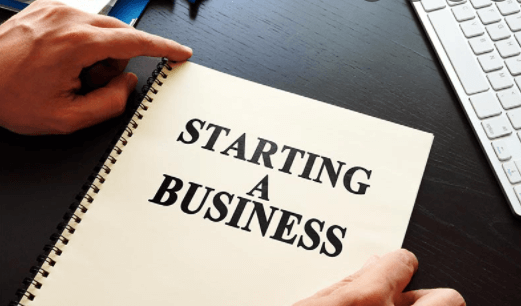Table of Contents
You are not alone if you want to start your own company. In 2021, Canada’s small company population was estimated to be about 30.7 million. Starting a business is one of the most fascinating endeavors you can do.
However, if you don’t take the proper measures, a lot may go wrong.
According to the study, 30 percent of enterprises fail during the first two years, and just 40% survive for five years.
The strategy has a big role in determining whether or not a company will endure.
Experts suggests that small investment and business planning should start well before you open your first store or place your first ad. Of course, there are always influences outside of your control, from big changes in the stock market to unfavorable weather.
Here’s what you need to start a business:
-
Some Money To Invest
Many entrepreneurs ask if they can set up a business without any money. Even though the only money spent is on company registration, a person will almost always have to invest some money to get a business up and running.
If you don’t have the funds to invest, your brand may not even exist in the first two years; you won’t be able to take risks or attempt alternative marketing tactics, even if they are needed.
Many businessmen feel that having money to invest in their enterprises makes it simpler to succeed. Without it, obtaining the necessary supplies and equipment, as well as dealing with unanticipated costs, may be difficult, if not impossible.
-
Well-Defined Business Goals – Earning Money Should Not Be One
To develop your small company concept, start by asking yourself a few fundamental questions:
- Why? Consider your company’s mission and the requirements it fulfils. (Be as specific as possible about why you’re establishing your business so you can convey it in one phrase.)
- What? What kind of product or service will you be providing?
- Who? Who is your intended audience or consumer base? Describe demographic parameters like age, gender, financial status, area, and other elements in detail.
- How? Describe how you intend to develop and offer your product or service to your consumers or clients.
Instead of beginning a business from the ground up, you might open a franchise of a well-known brand. The company idea and plan are already formed with a franchise, making it easier to get your business up and running faster.
-
Fool-Proof Financing Methods
For years to come, how you receive financing will have an impact on the future of your company. Uninvested cash, parents and brother loans, public and commercial loans, and financial assistance are just a few examples of possible financial sources.
Many businesses employ a mix of diverse sources. Developing business credit and multiple lines of credit via combining existing scenarios might provide additional money. Small company financing and angel investors are also accessible in various stages. Business loans from financial institutions like Thinking Capital can be used to promote growth without giving up capital.
At this stage, your startup should have established clients/customers, have grown since its founding, have a distinct market positioning, and have a clear business plan for how to develop with the new investment.
-
Guts To Lose All Of Your Money And Still Willing To Try Again
When others would quit right away, successful businesses keep going. A successful company owner is defined by their inner desire. Your mindset will play a role in whether or not your company succeeds. So keep going, and your efforts will be rewarded.
Any “beginning a company checklist” should include crucial tasks. They do not, however, ensure success. Only you, with your hard work, wise judgments, and excellent workers, can do this. Keep your wits about you, be ready for obstacles, and go for it! Never, ever quit trying.




![1000 Girl Attitude Names for Truecaller ID | UPDATED [Included Boys Names] 1000 Attitude Names for Girls on Truecaller](https://edutechbuddy.com/wp-content/uploads/2025/05/ChatGPT-Image-May-21-2025-11_59_39-PM-1-150x150.png)










![1000 Girl Attitude Names for Truecaller ID | UPDATED [Included Boys Names] 13 1000 Attitude Names for Girls on Truecaller](https://edutechbuddy.com/wp-content/uploads/2025/05/ChatGPT-Image-May-21-2025-11_59_39-PM-1.png)